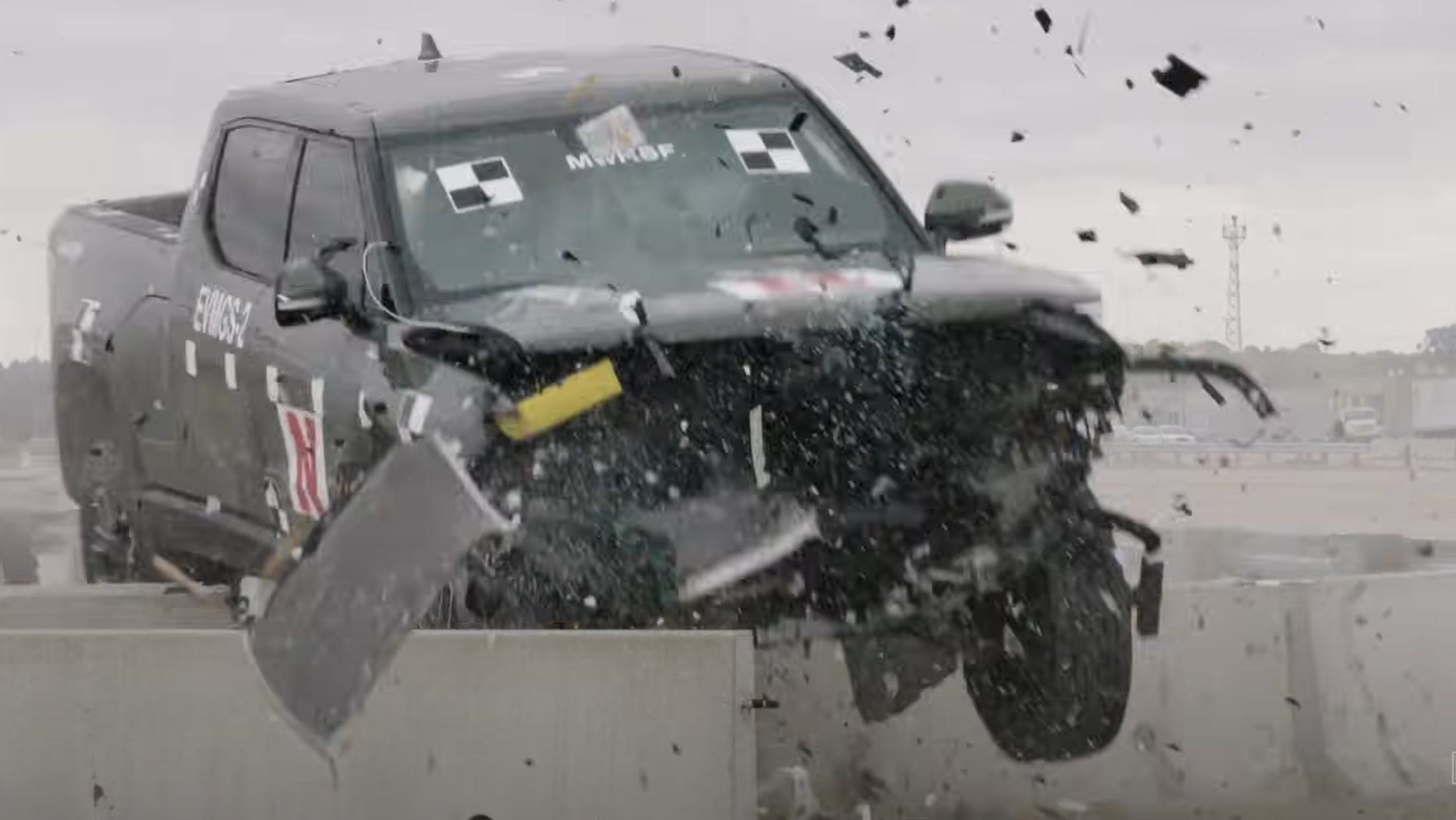In a recent crash test conducted by the University of Nebraska-Lincoln (UNL) at the Midwest Roadside Safety Facility (MwRSF), the Rivian R1T, an electric truck weighing 7,000 pounds, crashed through a guardrail designed for traditional internal combustion engine (ICE) vehicles. The research, sponsored by the US Army Engineer Research and Development Center (ERDC) in collaboration with Auburn University’s Transportation Research Institute, aimed to evaluate the effectiveness of existing guardrail protection against the growing number of electric vehicles (EVs) on the road.
The footage captured during the test reveals the limitations of the Federal Highway Administration’s standardized guardrail when faced with the sheer force of an R1T traveling at 60 mph. The guardrail, composed of 12-gauge corrugated steel and six-inch deep steel posts, anchored by eight to 12-inch thick blackouts, failed to deflect the impact, raising concerns about its ability to protect against run-off crashes involving EVs.
See also: Rivian Files Patent for Stowable Bed and Roof Rack System for Pickups and SUVs
Cody Stolle, MwRSF’s assistant director, emphasized the urgency to address this issue, citing the increasing percentage of EVs on the road and the potential rise in run-off-road crashes involving these vehicles. Run-off crashes contribute to thousands of fatalities each year, prompting a reevaluation of roadside barrier designs.
The US Military’s interest in this research stems from the need to ensure protection measures, such as roadside barriers, evolve to accommodate the changing composition of the vehicle fleet. Genevieve Pezzola, a research civil engineer at ERDC, highlighted the critical nature of conducting baseline comparison tests for EVs to identify potential risks and enhance protection measures against hostile vehicles.
See also: Rivian Tops Consumer Reports’ List as the Most Loved Car Brand
As EV sales continue to surge, with the Tesla Model Y ranking as the world’s best-selling vehicle, the study emphasizes the importance of adapting safety measures to account for the increased weight of EVs. MwRSF’s research indicates no significant difference in the rate of run-off crashes between EVs and ICE vehicles. However, the substantial weight difference, with EVs weighing 20-50% more than their ICE counterparts, poses a challenge that requires a reassessment of roadside barrier designs.
This groundbreaking crash test prompts further examinations, with additional tests planned to determine future steps in enhancing safety measures for evolving vehicle fleets. The implications extend beyond EVs, urging a comprehensive reexamination of roadside barrier designs to address the critical and timely need for updated safety standards.


please show a video of an F150/250/350 sized truck hitting the guard rail… would be nice to see comparable trucks….